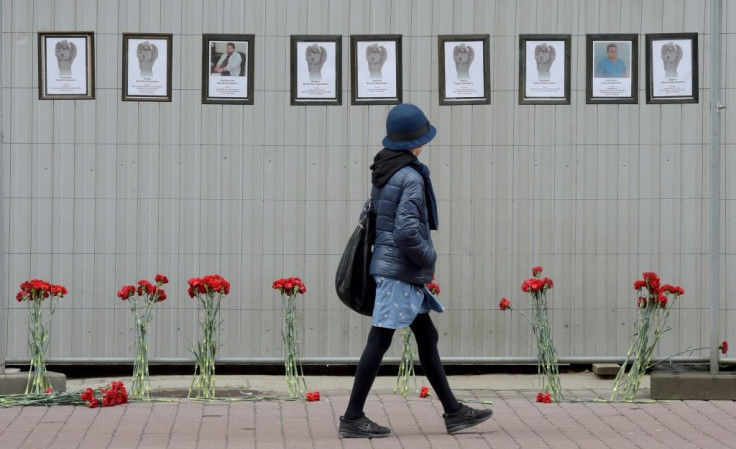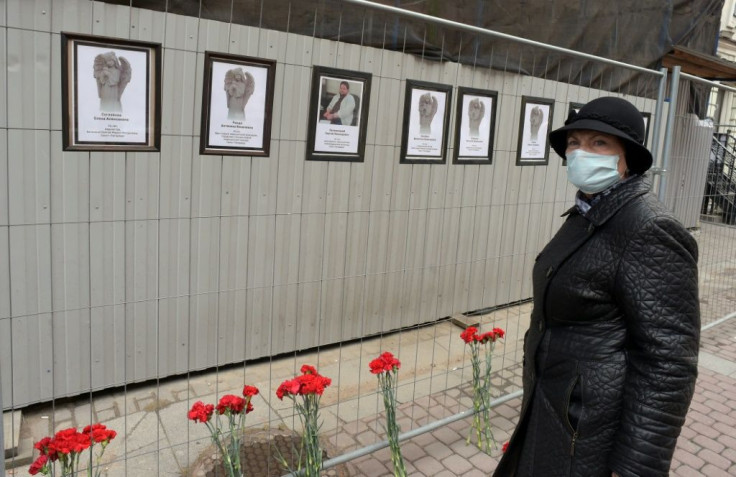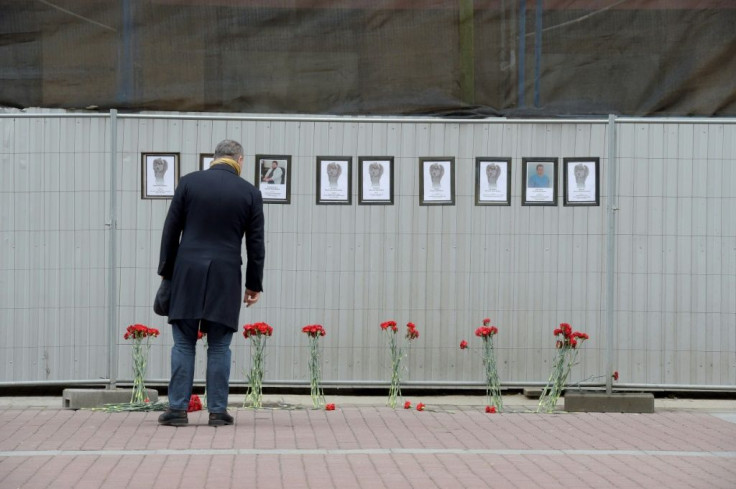Wary Russian Doctors Count Their Own Dead From Virus
When Russian cardiologist Alexei Erlikh and several colleagues started a project to keep track of medics who had died from the coronavirus, he never expected there would be so many names.
Launched last week, the database already lists more than 70 dead doctors, nurses and lab technicians, and the number is expected to grow as Russia approaches its peak of infections.
"A lot of colleagues are dying. It's pretty hard to see a new name every day," Erlikh told AFP.
"There will be more victims among medics. The list is far from complete."
The main goal of the "Remembrance List" is to honour the medics. But Erlikh said he and his colleagues also felt they had to take matters into their own hands because they don't trust that authorities will provide reliable information about health workers' deaths.

Russia is registering several thousand new coronavirus infections a day and, with more than 99,000, has surpassed China and Iran in the number of cases.
Its fatality rate, with 972 deaths as of Wednesday, is low in comparison to countries like Italy, Spain and the United States.
Except, according to the Remembrance List, when it comes to medical workers.
Of some 27,000 deaths in Italy, 151 were doctors. In China, 40 medical staff are registered as having died from the virus and in the United States it was 27 as of April 9, the latest figure available.
The Remembrance List as of Wednesday showed 74 medical staff who had died from the virus. Seventy died in Russia, with more than half from hard-hit Moscow and the surrounding region.
Four were from neighbouring Belarus -- whose authoritarian leader Alexander Lukashenko has dismissed the coronavirus epidemic as a "psychosis" and refused to impose a general lockdown.

Erlikh, who heads the cardiac ICU at Moscow City Hospital No. 29, spoke to AFP from home where he was self-isolating after testing positive for the coronavirus.
He said at least 70 percent of his unit also tested positive.
Since the start of the epidemic, medics in Russia have complained of shortages of protective gear and testing kits, as well as an unwillingness by some hospitals and clinics to test their staff because they do not want them quarantined.

As a result, they say, many hospitals have become hotspots of the coronavirus.
Neurosurgeon Alexei Kashcheyev said the doctors' list of casualties was the latest piece of evidence that Russia's under-funded health care system was utterly unprepared to deal with a major crisis.
"This was expected," he said, adding that complaints of overworked and underpaid staff have fallen on deaf ears for years.
Kashcheyev said he personally knew two victims from the list, which he praised and called more reliable than any official statistics.
"Our medical community is pretty united. We are exchanging information related to our safety and the safety of our families and patients," he said.
He said he hopes the list may help doctors' families receive financial help from authorities in the future.
While officials acknowledge shortages of protective gear, they stress that the country has worked hard to scale up testing capacities and say that Russia's mortality rate of less than one percent is among the lowest in the world.
But critics allege that Russia is under-reporting coronavirus fatalities and no official death toll for medical workers has been released.
The health ministry did not respond to an AFP request for the number of coronavirus casualties among health personnel or reaction to the doctors' list.
Anastasia Vasilyeva, the head of the Doctors' Alliance, an independent medical workers' union, accused officials of seeking to downplay deaths of health personnel.
She said the doctors' tally appeared to be a significant undercount, pointing out that some regions were not represented on the list and estimating that at least 200 medical workers had died in Russia from the virus.
"I myself can add around 10 names to that list. I am getting messages every day: 'This person died. And that person died'," said Vasilyeva, whose group is linked with opposition leader Alexei Navalny.
Critics say the growing death toll should be a wakeup call for the Kremlin which has prioritised defence spending over health care.
"When this is all over I think we -- both medics and society -- should sound the alarm about this problem and demand that it be solved," said Kashcheyev.
"We have the right to do it."
© Copyright AFP 2024. All rights reserved.





















